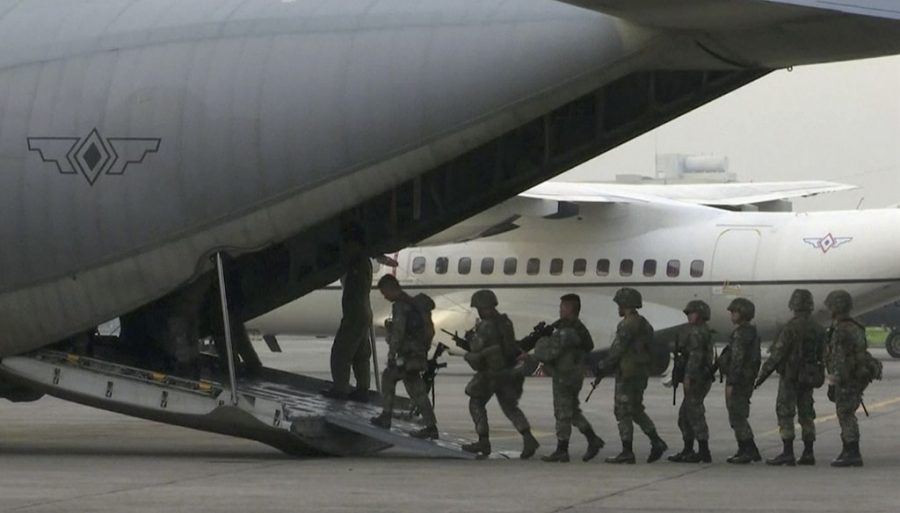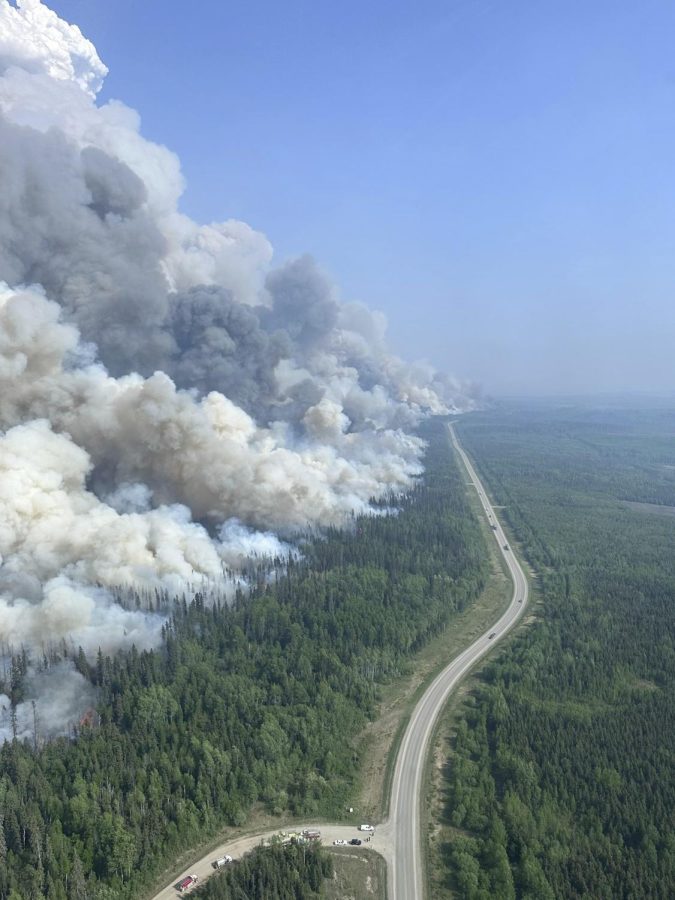Philippine airstrike kills 11 soldiers in besieged city
MARAWI, Philippines — A Philippine bomber plane killed 11 soldiers and injured seven others, security officials said June 1, as troops struggled to end a bloody siege by 500 Islamic State group-aligned extremists.
The plane was making a bombing run over militant positions in Marawi May 31 when one bomb accidentally hit army troops locked in close battle with extremists who had taken cover in buildings and houses, military spokesman Brig. Gen. Restituto Padilla said. The plane made three successful bombing runs prior to the error, he said.
The military ran out of precision-guided bombs from earlier airstrikes and used conventional ones in the May 31 bombing run, Philippine Defense Secretary Delfin Lorenzana said in a news conference in Manila.
44 migrants die of thirst in Niger during desert crossing
NIAMEY, Niger — At least 44 migrants, including babies, died of thirst after their vehicle broke down in the Sahara Desert as they tried to reach Libya, an official in Niger said Thursday.
Most of the dead migrants were from Ghana, said the prefect of Dirkou locality, Bachir Manzo. They included three babies, two children and 17 women. The official said six people survived, and are being cared for in the Dirkou migrant center.
West African migrants traveling to Europe often pass through Niger, and some 300,000 migrants passed through the vast West African nation in 2016 alone, according to the International Organization for Migration.
The bodies were discovered just days after President Mahamadou Issoufou made a plea to the leaders of G-7 industrialized nations to address the migration crisis during a meeting in Taormina, Sicily.
Trump keeps US Embassy in Tel Aviv, for now
WASHINGTON — Stepping back from a campaign promise and incurring Israeli ire, President Donald Trump acted Thursday to keep the U.S. Embassy in Israel in Tel Aviv instead of moving it to Jerusalem. The cautious move aims to bolster prospects for an Israeli-Palestinian peace accord.
Trump avoided a step that threatened to inflame tensions across the Middle East and undermine a push for peace before it even started. Still, the White House insisted Trump was merely delaying, not abandoning, his oft-cited pledge to relocate the embassy.
Trump faced a June 1 deadline to determine how to proceed. Under a 1990s law passed by Congress, the president must move the U.S. Embassy to Jerusalem or the State Department loses half its funding for overseas facilities. But the president can waive the law if he believes it is in the best interest of U.S. national security. Presidents have consistently renewed the waivers for six-month stretches — President Barack Obama did so six months ago.
Trump’s decision to keep the embassy in Tel Aviv showed just how far he has shifted from the unwavering support for Israel’s policies that he expressed during the 2016 campaign. As president, Trump has proceeded cautiously, hoping to preserve his ability to mediate one of the world’s most intractable conflicts.
IS news agency’s founder killed in strike
BEIRUT — The founder of the Islamic State group news agency and his daughter were reportedly killed in an airstrike last week in eastern Syria, opposition activists said June 1.
The militant group itself has not reported the death of the Aamaq agency founder, Baraa Kadek. Activists said Kadek was close to the IS group leadership, gaining trust and reportedly meeting with the enigmatic leader Abu Bakr al-Baghdadi.
Kadek’s brother, Hozaifa, and former friends reported his death, saying he died when a suspected airstrike by the U.S.-led international coalition hit his home in the town of Mayadeen in the province of Deir ez-Zor.
Last week, the coalition told The Associated Press it had carried out a series of airstrikes on May 25 and 26 targeting IS media infrastructure and “propaganda facilities.” It said at the time that targeting such facilities “degrades” the group’s capabilities and tools to inspire attacks on foreign lands.
At the time, activists said the coalition airstrikes killed at least 35 civilians, including family of IS members.
Scientists say Antarctic shelf about to lose iceberg
BERLIN — Scientists say a crack along a key floating ice shelf in Antarctica indicates that a vast iceberg is close to breaking off.
The process, known as calving, happens periodically, but researchers are watching closely to see whether climate change is affecting the phenomenon.
Scientists at the Swansea University in Britain said June 1 the rift in the Larsen C ice shelf grew by 10.6 miles in six days.
They say the break, when it comes, could produce one of the largest icebergs ever recorded.
University of Colorado scientist Ted Scambos said the shelf appears to be breaking further back than previously recorded calvings.
Scambos adds that “this berg is telling us something has changed, and not for the better. For now, though, the ice shelf will barely notice.”
ASSOCIATED PRESS














